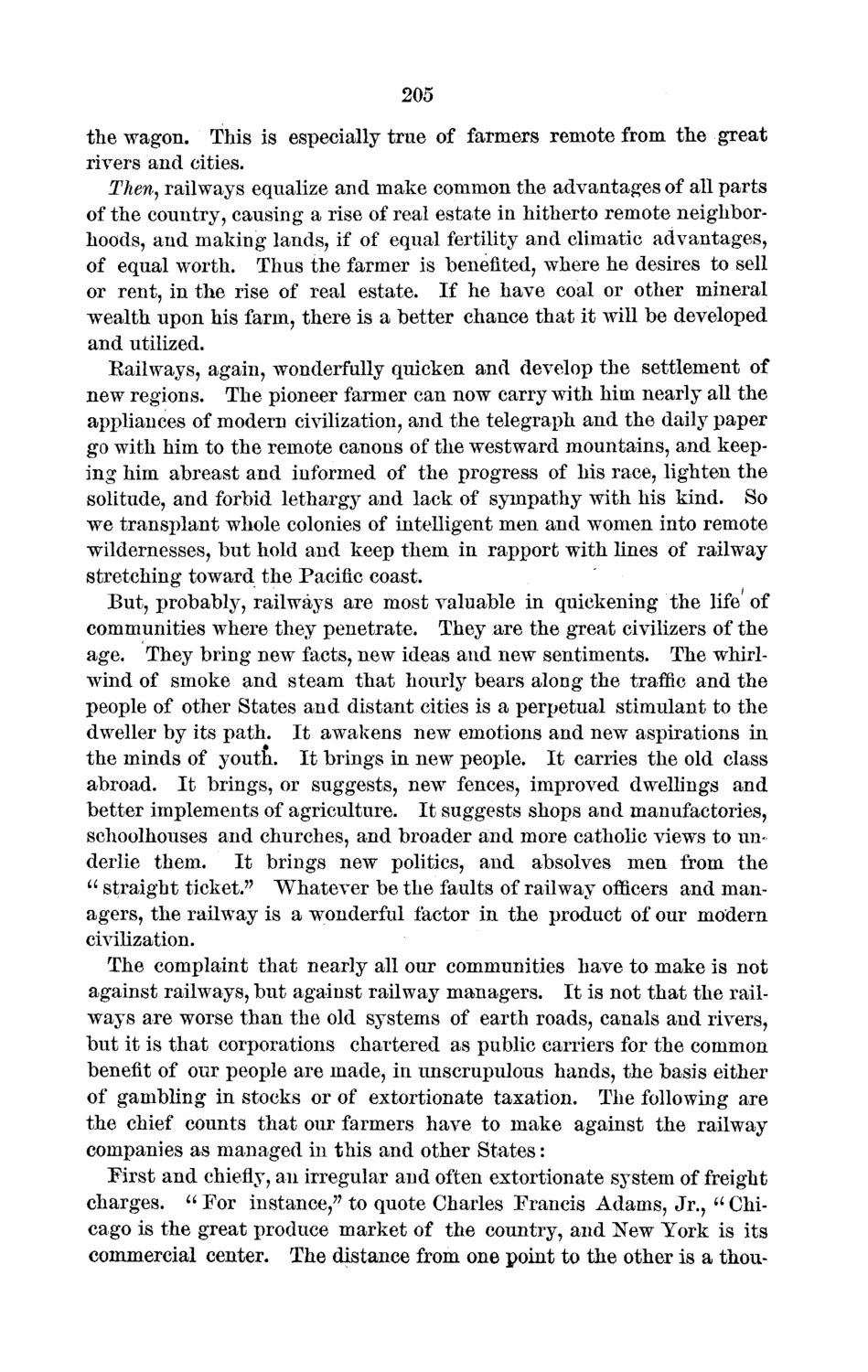| |
| |
Caption: Board of Trustees Minutes - 1872
This is a reduced-resolution page image for fast online browsing.

EXTRACTED TEXT FROM PAGE:
205 the wagon. This is especially true of farmers remote from the great rivers and cities. Then, railways equalize and make common the advantages of all parts of the country, causing a rise of real estate in hitherto remote neighborhoods, and making lands, if of equal fertility and climatic advantages, of equal worth. Thus the farmer is benefited, where he desires to sell or rent, in the rise of real estate. If he have coal or other mineral wealth upon his farm, there is a better chance that it will be developed and utilized. Eailways, again, wonderfully quicken and develop the settlement of new regions. The pioneer farmer can now carry with him nearly all the appliances of modern civilization, and the telegraph and the daily paper go with him to the remote canons of the westward mountains, and keeping him abreast and informed of the progress of his race, lighten the solitude, and forbid letharg}^ and lack of sympathy with his kind. So we transplant whole colonies of intelligent men and women into remote wildernesses, but hold and keep them in rapport with lines of railway stretching toward the Pacific coast. But, probably, railways are most valuable in quickening the life of communities where they penetrate. They are the great civilizers of the age. They bring new facts, new ideas and new sentiments. The whirlwind of smoke and steam that hourly bears along the traffic and the people of other States and distant cities is a perpetual stimulant to the dweller by its path. It awakens new emotions and new aspirations in the minds of youth. It brings in new people. It carries the old class abroad. It brings, or suggests, new fences, improved dwellings and better implements of agriculture. It suggests shops and manufactories, schoolhouses and churches, and broader and more catholic views to underlie them. It brings new politics, and absolves men from the " straight ticket." Whatever be the faults of railway officers and managers, the railway is a wonderful factor in the product of our modern civilization. The complaint that nearly all our communities have to make is not against railways, but against railway managers. It is not that the railways are worse than the old systems of earth roads, canals and rivers, but it is that corporations chartered as public carriers for the common benefit of our people are made, in unscrupulous hands, the basis either of gambling in stocks or of extortionate taxation. The following are the chief counts that our farmers have to make against the railway companies as managed in this and other States: First and chiefly, an irregular and often extortionate system of freight charges. " For instance," to quote Charles Francis Adams, Jr., u Chicago is the great produce market of the country, and New York is its commercial center. The distance from one point to the other is a thou-
| |